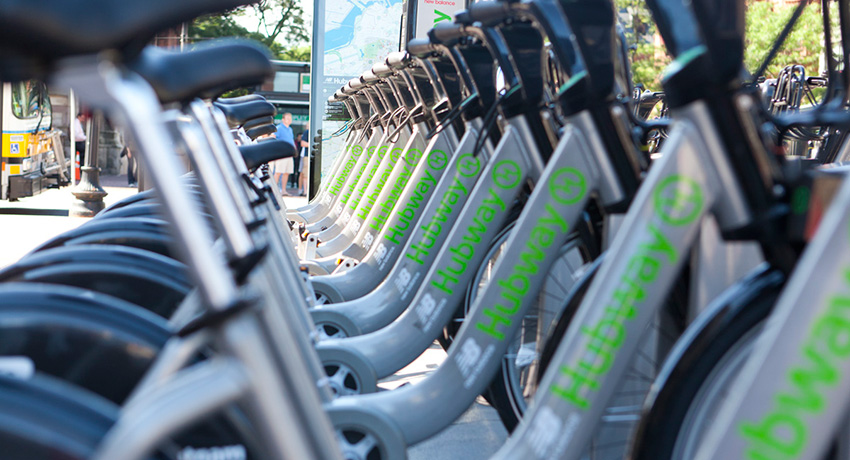Hubway’s Canadian Supplier Files for Bankruptcy

Photo by Meredith Foley
PBSC, the Montreal company that provides bicycles and technology for bike-sharing systems, filed for bankruptcy protection on Monday. This raises the fair question among users of the American systems that depend on its nifty bikes and solar-powered docks, including Hubway in Boston: Should we be worried?
For years, we’ve known PBSC, better known as Bixi, had financial problems. It took a $180 million bailout (in Canadian dollars) in 2011. This time, the company blames its issues in part on failures by New York and Chicago to pay their bills. (Those cities are refusing, pointing to problems with the software.) In America, Bixi doesn’t operate the systems it created. Rather, it acts as a supplier to a company called Alta Bicycle Share, which runs operations, and that company has stressed during earlier moments that service would be uninterrupted. In a statement on their website after the latest bad news, they did so again:
Alta Bicycle Share, Inc. (ABS), the leading operator of bikeshare systems in the country, has learned that one of its main equipment and technology suppliers, Public Bike System Company (PBSC), has filed for bankruptcy protection. Our systems across the country—in New York City, Chicago, Washington DC, Boston, the Bay Area, Columbus, OH, and Chattanooga, TN—are up and running and ABS will ensure that they continue to operate without interruption. Having served more than 15 million trips to date, we’re focused on continuing to provide a convenient, fast, fun, and affordable means of transit.
Given our plans to expand current systems and launch new systems this year, we’re in constant communication with both PBSC as well as its suppliers to ensure we can do so successfully.
That statement suggests Bixi’s implosion might impact expansion of the current systems rather than continued service. So Hubway wouldn’t be wiped off the map, but it would still be bad news in cities like Boston and New York, where there are still neighborhoods that need far more docks before the service is a viable transit alternative. But in general, this stuff is speculative. Both companies have been relatively tight-lipped with the media about the potential impact, except, of course, to reassure us that short-term service won’t be interrupted.
We can only hope that Bixi’s prolonged financial problems are giving American cities enough lead time to start making alternative plans, should they need to, to continue moving their bikeshare systems forward with technology improvements and wider networks of bikes and stations. After the requisite roll-out grumbles, cities have generally taken to them wholeheartedly. Boston is no exception. And it’d be a shame to see a system that does the public good and that urban-dwellers have taken to be stymied by the Canadian company’s business model.

